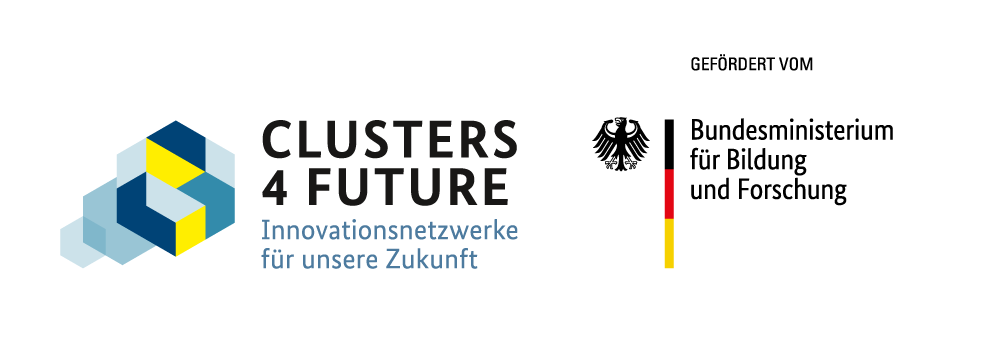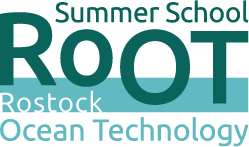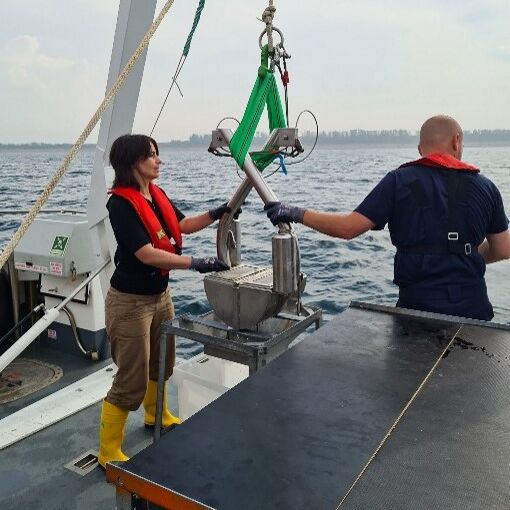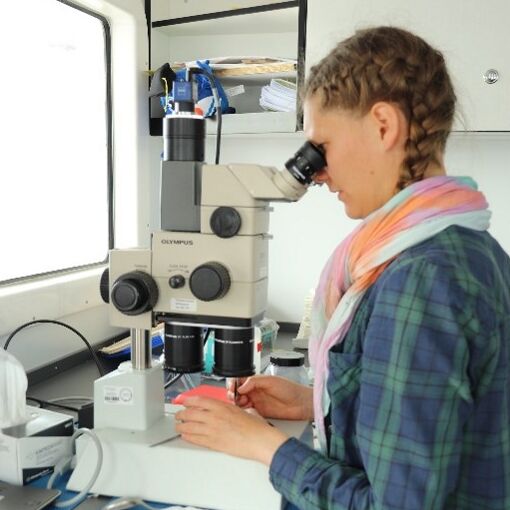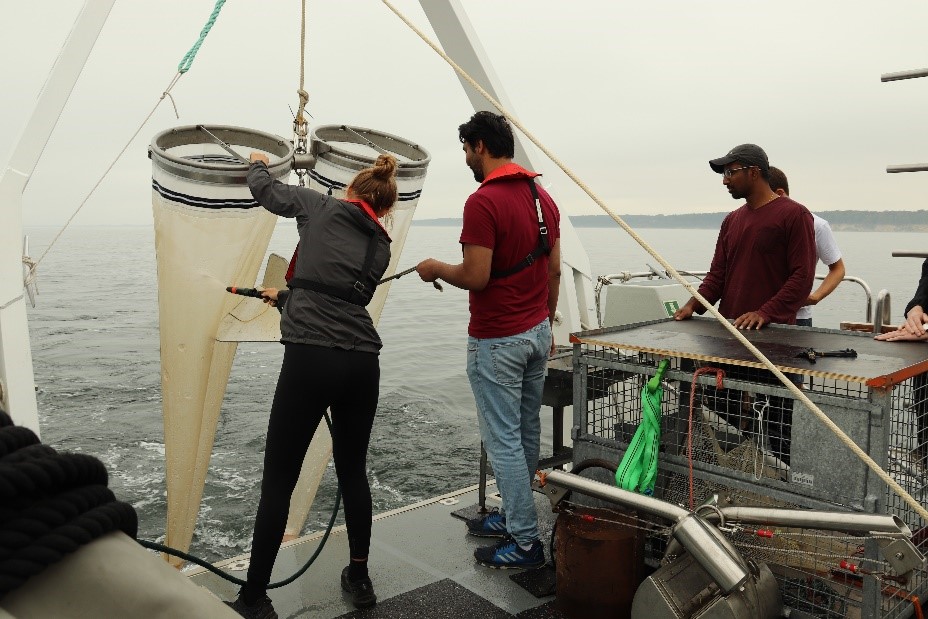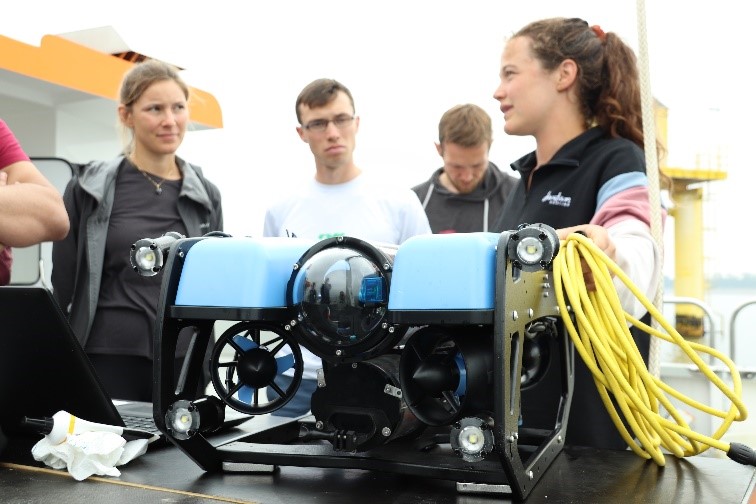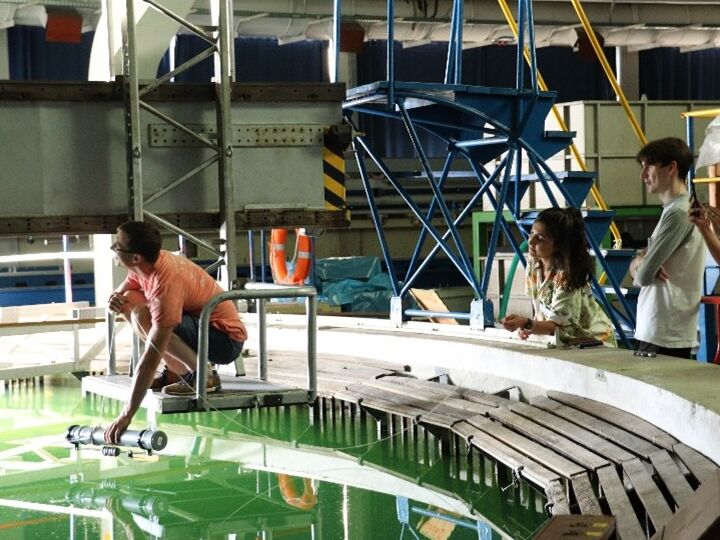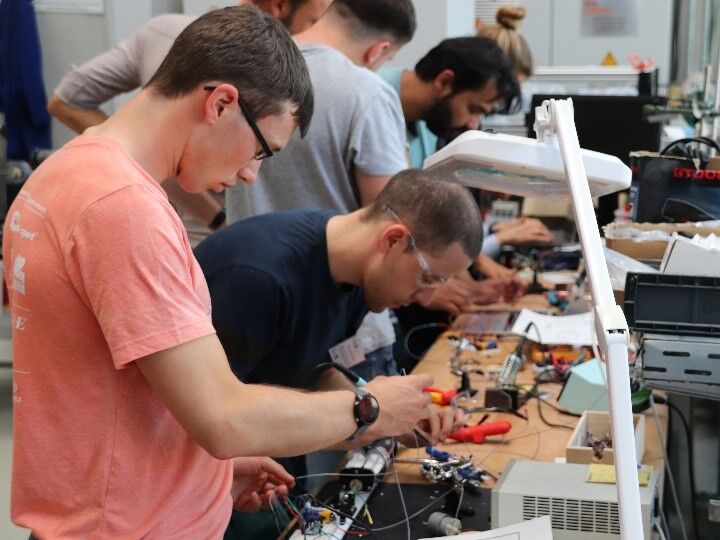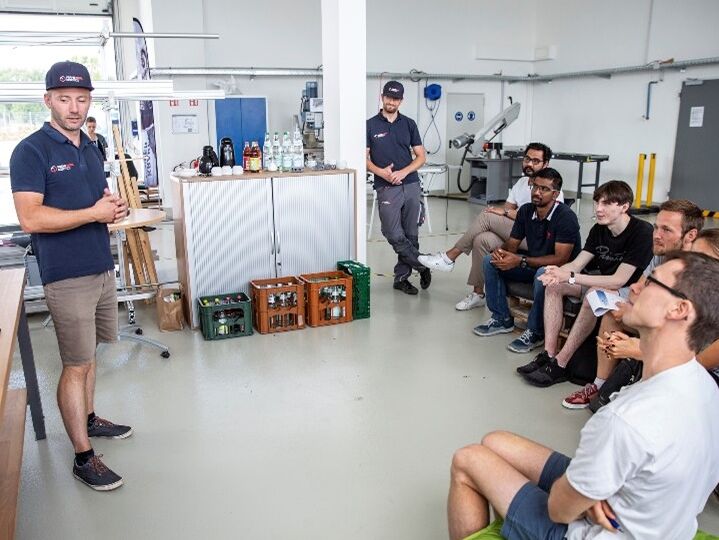Where does current marine technology stand and what can be done with it? Sixteen selected participants were able to explore this from August 22 to September 2. The two-week intensive course focused on the latest technologies and high-tech procedures for sustainable, future-oriented use of coasts and seas. The aim of the participating lecturers from the Ocean Technology Campus cluster projects was to give the participants a practical insight into interdisciplinary work in the field of marine and underwater technology. Participants learned how sediment samples from the seafloor and water column samples were taken on board and what organism live in these ecosystems during the trip with the research catamaran Limanda. Further, there were also project days on the program, during which the participants were able to launch their own designed underwater vehicles in the flow basin of the University of Rostock and equip them with various underwater sensors.
Professor Sascha Kosleck, holder of the Chair of Marine Technology at the University of Rostock, was about the subsea monitoring days during the summer school: "On Day 2, we built functional miniature gliders and tested them in the university's circular canal. Underwater gliders are unmanned diving robots that use the same principle of flight as a glider. The participants gained both theoretical and practical insights into the world of autonomous underwater technology and learned about the technical challenges that can arise during the development and operation of underwater vehicles."
Post by Participant Marco Friedrichsen
Dr. Helen Morrison from the University of Rostock coordinated the summer school program with the individual partners in the Ocean Technology Campus future cluster 2022: "The summer school reflects a small part of the entire Ocean Technology Campus. I am pleased that we can offer the participants an insight into the diversity of marine and underwater technology and am curious about what we will learn from them in return."
